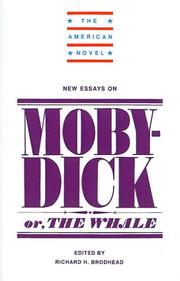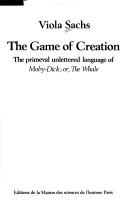| Listing 1 - 10 of 10 |
Sort by
|
Book
ISBN: 9782745318237 2745318233 Year: 2008 Volume: 80 Publisher: Paris Honoré Champion
Abstract | Keywords | Export | Availability | Bookmark
 Loading...
Loading...Choose an application
- Reference Manager
- EndNote
- RefWorks (Direct export to RefWorks)
Book
Year: 1965 Publisher: New Haven : Yale University Press,
Abstract | Keywords | Export | Availability | Bookmark
 Loading...
Loading...Choose an application
- Reference Manager
- EndNote
- RefWorks (Direct export to RefWorks)

ISBN: 0521302056 0521317886 9780521317887 Year: 1986 Publisher: Cambridge Cambridge University Press
Abstract | Keywords | Export | Availability | Bookmark
 Loading...
Loading...Choose an application
- Reference Manager
- EndNote
- RefWorks (Direct export to RefWorks)
Book
ISBN: 9782356540645 2356540644 Year: 2016 Publisher: Paris: Ypsilon,
Abstract | Keywords | Export | Availability | Bookmark
 Loading...
Loading...Choose an application
- Reference Manager
- EndNote
- RefWorks (Direct export to RefWorks)
Surnommé « le Platon noir de notre génération », C.L.R. James (1901-1989) a été l’un des principaux représentants de ce que l’on a appelé Black Marxism. En 1952, en plein maccarthysme, C.L.R. James est emprisonné à Ellis Island. C’est là qu’il débute la rédaction de Marins, renégats & autres parias. Son interprétation de Melville prolonge une lecture de Moby Dick qui opposait à la volonté totalitaire du capitaine Achab, le pluralisme démocratique représenté par le narrateur Ismaël. Mais si James reprend l’équation Achab = totalitarisme, il remet en cause sa contrepartie Ismaël = démocratie…
Book
ISBN: 9782843101205 2843101204 2377471250 Year: 2008 Volume: *1 Publisher: Grenoble Ellug
Abstract | Keywords | Export | Availability | Bookmark
 Loading...
Loading...Choose an application
- Reference Manager
- EndNote
- RefWorks (Direct export to RefWorks)
Du sphinx égyptien et de la sphinx grecque on connaît, outre les corps hybrides et le goût du mystère, la prédilection partagée pour les terres arides, sables du désert pour l'un, roches escarpées pour l'autre. C'est pourtant en plein océan qu'on les trouve réunis, au milieu du XIXe siècle, dans les romans maritimes de Victor Hugo et Herman Melville. Baleines, pieuvres, récifs, tempêtes, tous expressions de l'énigme universelle, y prennent tour à tour noms et attributs sphinxiaux. Pourquoi cette rencontre mythique, inédite et incongrue ? Pourquoi, surtout, en ces lieux, en cette époque ? La question n'est pas seulement symbolique. Elle est aussi, essentiellement, poétique. Autour des sphinx visibles s'inventent des modes secrets du dire, signes d'une dissémination de la figure antique dans la forme même des œuvres. Propos ambigus, histoires intriquées, digressions complexes, investigations criminelles redoublent les ténèbres sous-marines. Comme s'il convenait, à l'âge où la garantie divine quitte le navire, de compenser littérairement le déclin du mystère. L'évocation du grand sphinx sublime, sépulcre silencieux d'un ésotérisme en déroute, se trouve ainsi constamment remotivée par les énigmes enchanteresses de la sphinx légendaire, créature ravissante, rhapsode et ailée. Ultimes vols, en abîme, d'une parole énigmatique sur le naufrage du sens. Explorer, au gré des flots, les anamorphoses du dieu oriental et du monstre thébain, en suivre le sillage poétique entre profondeur symbolique et surface métaphorique, sonder derrière le mot de l'énigme les mots pour la dire, tel est le libre parcours que propose cet ouvrage. II nous entraîne dans une lecture plurielle et audacieuse qui tient à la fois de l'enquête littéraire et du voyage imaginaire.
Comparative literature --- Hugo, Victor --- Melville, Herman --- Sphinxes (Mythology) in literature --- Melville, Herman, --- Hugo, Victor, --- Maritime novels --- 19th century --- Sphinxes (Mythology) in literature. --- Melville, Herman, - 1819-1891 - Moby Dick --- Hugo, Victor, - 1802-1885 - Travailleurs de la mer --- Sphinx (mythologie) --- Hugo, victor (1802-1885). les travailleurs de la mer --- Melville, herman (1819-1891). moby dick --- Romantisme (mouvement littéraire) --- Dans la littérature --- Thèses et écrits académiques
Book
ISBN: 9780199768561 Year: 2011 Publisher: Oxford : Oxford University Press,
Abstract | Keywords | Export | Availability | Bookmark
 Loading...
Loading...Choose an application
- Reference Manager
- EndNote
- RefWorks (Direct export to RefWorks)
Although Herman Melville's masterworks Moby-Dick and Benito Cereno have long been the subject of vigorous scholarly examination, the impact of African culture on these works has received surprisingly little critical attention. Presenting a groundbreaking reappraisal of these two powerful pieces of fiction, Sterling Stuckey reveals how African customs and rituals heavily influenced one of America's greatest novelists.The Melville that emerges in this innovative, intertextual study is one profoundly shaped by the vibrant African-influenced music and dance culture of nineteenth-century America. Drawing on extensive research, Stuckey reveals how celebrations of African culture by black Americans, such as the Pinkster festival and the Ring Shout dance form, permeated Melville's environs during his formative years and found their way into his finest fiction. Also demonstrated is the extent to which the author of Moby-Dick is indebted to Frederick Douglass's depiction of music, especially the blues, in his classic slave narrative. Connections between Melville's work and African culture are also extended beyond America to the African continent itself. With readings of hitherto unexplored chapters in Delano's Voyages and Travels in the Northern and Southern Hemispheres and other nonfiction sources--such as Joseph Dupuis's Journal of a Residence in Ashantee --Stuckey links Benito Cereno and Moby-Dick , pinpointing the sources from which Melville drew to fashion major characters that appear aboard both the Pequod and the San Dominick .Combining inventive literary and historical analysis, Stuckey shows how myriad aspects of African culture coalesced to create the unique vision conveyed in Moby-Dick and Benito Cereno. Ultimately, African Culture and Melville's Art provides a wealth of insight into the novelist's expressive power and the development of his distinct cross-cultural aesthetic.
Melville, Herman (1819-1891) --- Melville, Herman (1819-1891). Benito Cereno --- Melville, Herman (1819-1891). Moby Dick --- Melville, Herman (1819-1891) --- Critique et interprétation --- Connaissance --- Melville, Herman (1819-1891) --- Melville, Herman (1819-1891). Benito Cereno --- Melville, Herman (1819-1891). Moby Dick --- Melville, Herman (1819-1891) --- Critique et interprétation --- Connaissance --- Afrique
Book
ISBN: 9630530112 9789630530118 Year: 1982 Publisher: Budapest : Akadémiai Kiadó,
Abstract | Keywords | Export | Availability | Bookmark
 Loading...
Loading...Choose an application
- Reference Manager
- EndNote
- RefWorks (Direct export to RefWorks)
Sea stories, American --- Whaling in literature --- Whales in literature --- History and criticism --- Melville, Herman, --- Sea stories, American - History and criticism --- Melville, Herman, - 1819-1891 - Moby Dick --- Melville (herman), 1819-1891 --- Litterature americaine --- Critique et interpretation --- 19e siecle
Book
ISBN: 2719304417 Year: 1975 Publisher: Paris Mouton
Abstract | Keywords | Export | Availability | Bookmark
 Loading...
Loading...Choose an application
- Reference Manager
- EndNote
- RefWorks (Direct export to RefWorks)
Melville, Herman --- Sea stories, American --- Whaling in literature. --- Whales in literature. --- History and criticism. --- Melville, Herman, --- -Whales in literature --- Whaling in literature --- American sea stories --- American fiction --- History and criticism --- Whales in literature --- Melville, Herman (1819-1891) --- Melville, Herman (1819-1891). Moby Dick --- Critique et interprétation --- Critique et interprétation

ISBN: 290172535X Year: 1982 Publisher: Paris : Editions de la Maison des sciences de l'homme,
Abstract | Keywords | Export | Availability | Bookmark
 Loading...
Loading...Choose an application
- Reference Manager
- EndNote
- RefWorks (Direct export to RefWorks)
Sea stories, American --- Symbolism of numbers in literature. --- Occultism in literature. --- Whaling in literature. --- Whales in literature. --- Myth in literature. --- Melville, Herman (1819-1891) --- Melville, Herman (1819-1891). Moby Dick --- History and criticism. --- Critique et interprétation --- Melville, Herman, --- Critique et interprétation
Book
ISBN: 9025330363 9789025330361 Year: 1974 Publisher: Amsterdam: Athenaeum-Polak & Van Gennep,
Abstract | Keywords | Export | Availability | Bookmark
 Loading...
Loading...Choose an application
- Reference Manager
- EndNote
- RefWorks (Direct export to RefWorks)
Poe, Edgar Allan --- Science fiction --- History and criticism --- Poe, Edgar Allan, --- Symmes, John Cleves, --- Reynolds, Jeremiah N., --- Melville, Herman, --- Reynolds, J. N. --- Citizen, --- Poe, Edgar Allen --- Po, Edgar, --- Boy, Ētkar, --- Poe, E. A. --- Poë, Edgard, --- Pui, ʼAggā ʼAyʻlaṅʻ, --- Pō, Eḍgār Ālen, --- Po, Edhar, --- Poe, Edgar Allen, --- Perry, Edgar A., --- По, Эдгар Аллан, --- По, Эдгар, --- פאו, עדגאר עלען --- פאו, עדגאר עלען, --- פא, אדגאר אלאן --- פא, עדגאר --- פא, עדגאר עלען, --- פו, אדגר --- פו, אדגר אלן --- פו, אדגר אלן, --- アランポオ, --- 愛倫坡, --- Po, Ailun, --- Quarles, --- Science fiction - History and criticism --- Poe, Edgar Allan, - 1809-1849 --- Symmes, John Cleves, - 1780-1829 --- Reynolds, Jeremiah N., - 1799-1858 --- Melville, Herman, - 1819-1891. - Moby Dick --- History and criticism. --- Reynolds, Jeremiah N. --- Symmes, John Cleves.
| Listing 1 - 10 of 10 |
Sort by
|

 Search
Search Feedback
Feedback About UniCat
About UniCat  Help
Help News
News